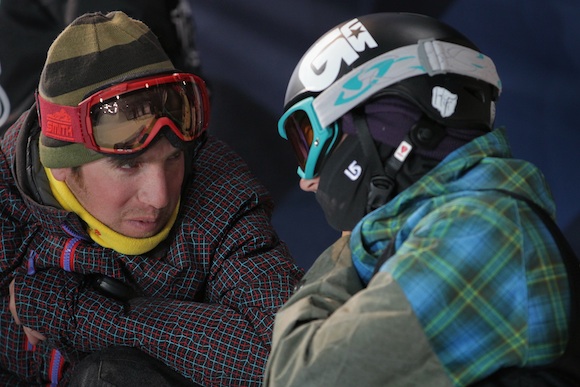Five Keys for Athlete Performance on Competition Day

Written by Lester Keller, PhD
USSA Sport Psychology Coordinator and Alpine Regional Development Director
Recently USSA staff shared an article from the world of youth hockey about the 10 "Deadly" Mistakes Hockey Players Make with Their Pregame Attitude. Being a believer in the law of dominant thought, I would like to suggest some areas to do, rather than things to avoid, on race day for skiers and snowboarders. Whether you are in a year round program or can only be a ski or snowboard competitor for a couple of months a year, the following are aspects of your sport that you should consider and have answers for.
- Be prepared and plan ahead as things mostly happen for reasons. The first key to superior performance is done before you get to a competition. Confidence comes from preparation. One of the factors that leads to trusting your performance possibilities is that you have put in the work leading up to the competition. Knowing that you have a complete training program that covers all the bases and that you did the work to be ready goes a long way to having confidence on competition day. Confidence has been called the number one factor that coaches of elite athletes want to see in their athletes. Be prepared.
- Develop routines. Develop a competition day routine that gets you into the readiness state where you perform best. These routines can and should involve physical, mental, emotional, and technical & event warm-up. They should be routines as opposed to rituals. The routine should be unique to you and be based on things that work to get you into an optimal state of readiness for the competition performance. Do things that specifically get you ready for the task such as getting a good physical warm-up as well as getting into a competition ready mindset. Part of the competition day plan is how you will interact with your supporting cast. Identify those things which others can do that will help you perform at your capabilities. Coaches are there to teach and to help you have the opportunity to do the best you are capable of. They can give great advice and assist you in many ways. Parents or significant others play a key role in your performance. Some things they can do will contribute to your preparation and readiness. On the other hand, other actions can distract you and have an adverse impact on your performance. Learn the difference and let those around you know what is helpful or harmful.
- Pay attention and focus. Live in the moment and avoid distractions. Life is full of demands that compete for your attention. If you can focus on the steps in the task at hand in the sequence those tasks present themselves you will be ready to give your best effort when the starter says "go". This is true whether your event lasts ten seconds as in an aerial jump or 45 minutes in a 15K ski. Plan your social interaction opportunities; take time to enjoy the company of your friends in a way that leaves optimal time to also be focused on performance when you should be. For example, if your teammates' trash-talk at the start distracts you, get ready away from them.
 Inspection. What information can you take in from the environment? What do you need to know to perform? One of the great advantages of our sports is that we get to inspect the courses before we compete on them. In some cases , such as in Super G, the inspection almost is the event. In others, such as aerials, the jump is almost a closed skill environment. No matter, in an outdoor winter environment the conditions can change during the competition. Snow surface consistency, light, temperature, and potential velocities all impact tactics and should be inspected as well as the placement of gates, terrain or features. After you have the information you need, practice by mentally rehearsing your run, jump, or race. Plan your actions, what you will do. Break down the course by what it demands and how you will respond. See yourself successfully implementing your plan. Give yourself positive instructions and see yourself doing the task successfully. Say affirming helpful things to yourself. Use self-talk that promotes confidence; that is, give yourself good, effective instructions and unconditional positive support. Plan those scripts in advance and practice them.
Inspection. What information can you take in from the environment? What do you need to know to perform? One of the great advantages of our sports is that we get to inspect the courses before we compete on them. In some cases , such as in Super G, the inspection almost is the event. In others, such as aerials, the jump is almost a closed skill environment. No matter, in an outdoor winter environment the conditions can change during the competition. Snow surface consistency, light, temperature, and potential velocities all impact tactics and should be inspected as well as the placement of gates, terrain or features. After you have the information you need, practice by mentally rehearsing your run, jump, or race. Plan your actions, what you will do. Break down the course by what it demands and how you will respond. See yourself successfully implementing your plan. Give yourself positive instructions and see yourself doing the task successfully. Say affirming helpful things to yourself. Use self-talk that promotes confidence; that is, give yourself good, effective instructions and unconditional positive support. Plan those scripts in advance and practice them.- Have fun. Remember to enjoy yourself. Part of the great Pele's competition day warm-up was to review the pleasure he found in playing the game of soccer and remember the fun the game brought to his life. Savor the day; ski and snowboard competitions are a really fun way to spend the day. Living in the mountains and competing in cool resorts in the outdoors is a great way to spend the winter.
